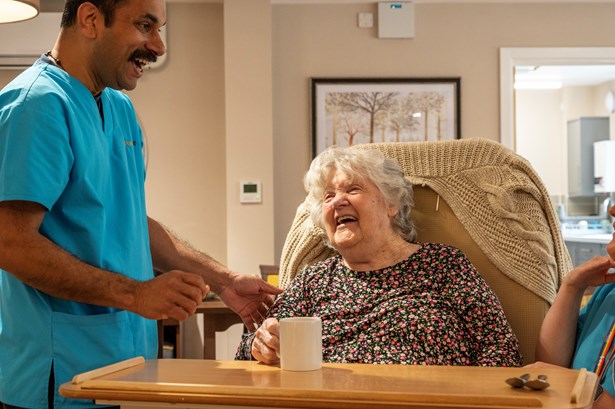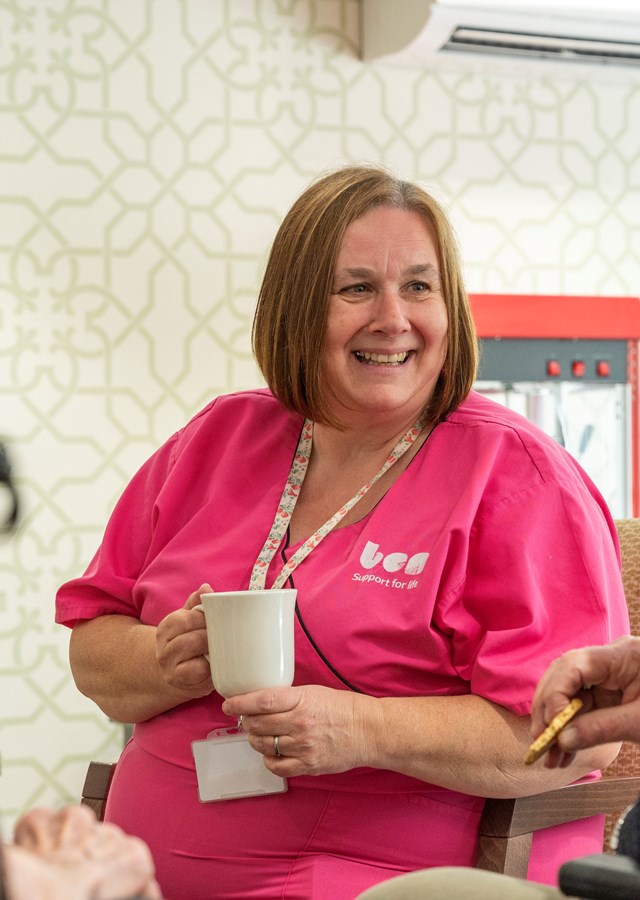Ben Care has developed a new approach to care that is giving care home residents faster access to the care they need, improving the quality of care and boosting staff retention. Under the Best Lives model, Ben’s care teams have undertaken further, specialised training in basic nursing tasks, freeing up the care homes’ Registered General Nurses to spend more time with residents delivering expert nursing care. This additional time means the nurses are better able to identify changing needs and put appropriate care plans in place quickly rather than care teams having to wait for external nursing support to arrive.
As well as improving the quality of care, the new model delivers more highly trained and better paid care staff, leading to improved staff retention, which means residents are looked after by people they know and trust. Now, when a resident’s needs change, for example from residential to nursing care, they can stay in their familiar room with their familiar care team and the nursing care will come to them.

'The best part of all is that residents can stay where they are most comfortable when they are ill or when they need end of life care. The last thing anyone wants at that point is upheaval, and now we can bring the care to them rather than the other way round. It really has made a massive difference to everyone' Jo Brine, Head of Care
Why Ben developed the Best Live’s Model
Registered Nurses play a vital role in care homes. Residents often have multiple health issues and complex medical regimes, some have dementia and others have physical disabilities. Nurses oversee, monitor and manage their care, including medication, so it’s a hugely important and challenging role. With so much to do, Ben Care’s management team noticed that their nursing team simply didn’t have enough time to engage with residents and provide vital emotional support; a new approach was required.
The team mapped out all the tasks undertaken by nurses and assessed which tasks could, with the right training, be undertaken by carers. Basic observations (such as taking someone’s blood pressure or temperature), catheter care and personal care were among the tasks identified. Carers were then offered training to learn how to deliver these tasks, with the additional responsibility reflected in an uplift in their pay. With carers trained to undertake basic tasks, nurses are free to undertake the more complex, time-intensive work.
This new approach means that nursing care is now delivered in every area of the care home, rather than just in the nursing care unit. Nurses now have the time to move throughout the care home, with appointments and tasks scheduled in their online calendar, and deliver nursing care to residents wherever they are. Carers enjoy greater responsibilities, a more engaging role and a developing skill set with which to further their career. For residents, if their needs change and they require nursing care (rather than just residential care), they no. longer have to move to a different part of the care home, they can stay in their own room, with their friends and familiar care team around them, which makes times of illness much easier to cope with.
The Head of Care, Jo Brine is delighted with the changes “Our new approach is making a huge difference. Our care teams are really embracing the opportunity to develop their skills and we see many of them blossoming into fantastic carers. Our nurses love how they can plan their day so they’ve got the time to deliver really high quality care and take time to chat to residents. The best part of all is that residents can stay where they are most comfortable when they are ill or when they need end of life care. The last thing anyone wants at that point is upheaval, and now we can bring the care to them rather than the other way round. It really has made a massive difference to everyone.”


